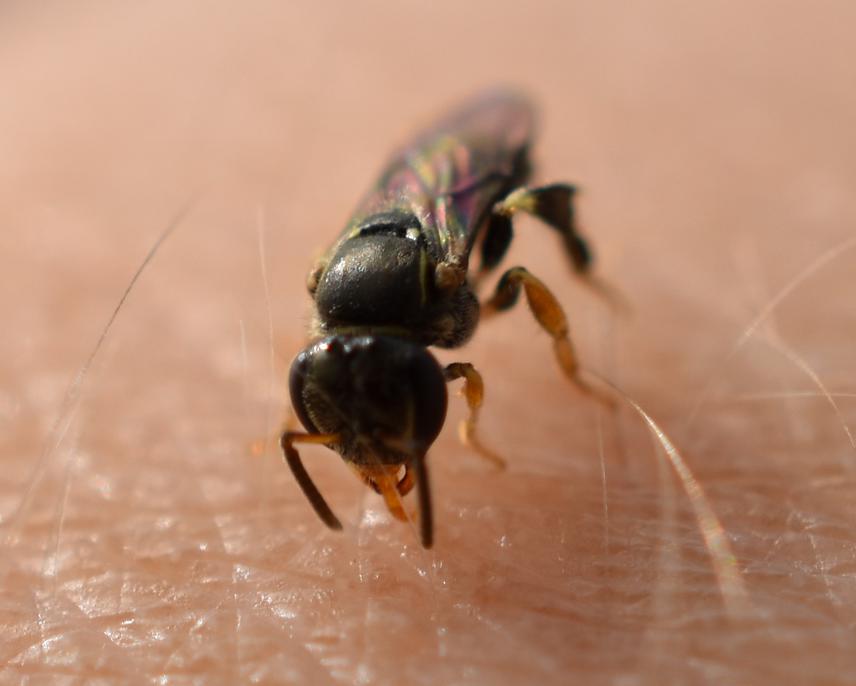Social media video featuring the project.
Lívia Maria Negrini Ferreira
This project aims to assess the risk of broadly used pesticides to tropical wild bees, aiming pollinators conservation. I will test two hypotheses with stingless bees, the main group of tropical pollinators: 1- Bees prefer to forage in pesticide-contaminated food rather than in uncontaminated food; 2- Field contamination with combined or isolated pesticides impairs their colonies. First, I will conduct preference tests where colonies will be exposed to non-contaminated food and to contaminated food with one pesticide or with a combination of pesticides. Second, I will carry out non-choice experiments to test the consequences of contamination to bees´ colonies.

A Plebeia lucii bee feeding on sweat, which provides salt and moisture to its diet. ©Lívia Maria Negrini Ferreira.
The conservation of terrestrial ecosystems depends, to a large extent, on the conservation of pollinators, among which bees stand out. One of the probable causes for the population decline of bees is the increase in the use of agrochemicals, but this hypothesis has been insufficiently tested with Brazilian wild bees, especially in field studies. In tropical regions, stingless bees (Apidae: Meliponini) are the main pollinators of native plants and can be exposed to different agrochemicals when foraging on contaminated flowers.
In this project, I will assess the risk of exposure in the field and the susceptibility of stingless bees to these compounds through tests in a protected environment (greenhouses). In order to do this, I will subject colonies of the stingless bee species Plebeia lucii to preference tests with non-contaminated food and food contaminated with one pesticide or with a combination of pesticides. The active ingredients of the two pesticides to which the bees will be exposed are among the ten best-selling active ingredients in Brazil: the herbicide glyphosate and the insecticide acephate. In addition, I will verify the effects of exposure to one of these pesticides and to a combination of them in colonies of P. lucii by means of non-choice experiments.
These experiments will be conducted through chronic exposure to pollen and sucrose solution contaminated with realistic concentrations of either acephate, glyphosate or a combination of both. The effects on the colonies will be investigated in the long term, in order to observe more than one generation of bees within colonies. I intend, therefore, to develop an innovative ecotoxicological project that provides subsidies for the management of the use of agrochemicals in Brazil, in order to contribute to the conservation of wild pollinators.